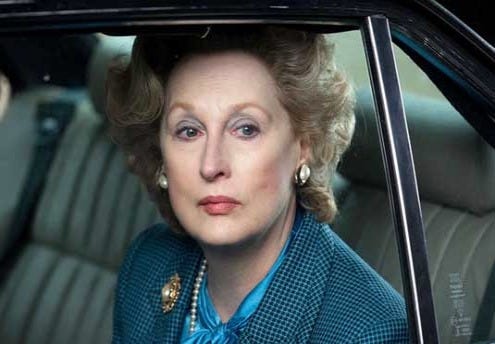Return of The Iron Lady

There is a worry that "The Iron Lady," a feature-film biopic of Margaret Thatcher’s life, is too much of a dramatisation and lacks the weight to do justice to this iconic woman who changed Britain forever. Its portrayal of her has a tendency to trivialise the key events that led to her becoming leader — glazing over them with a lightness that takes away any seriousness they held.
There was a bit of an uproar when it was announced Meryl Streep, an American, was to play Lady Thatcher. Surely she couldn’t possibly have a good enough grasp on UK policy and politics to do justice to the lady "who would not be turned." However Streep’s reputation as an actress of stature meant she was, in fact, perfect for the role and the film would no doubt have suffered without her. This new take on Britain’s ex-PM focuses on Thatcher’s own life and character while showing the struggle of balancing marriage and motherhood while being head of state.
Streep is accompanied by a top British supporting cast for one of her most inspired performances. Jim Broadbent (2010's "Another Year") is Thatcher’s right-hand man in her personal life as her husband, Denis. Richard E. Grant (1992's "Bram Stoker's Dracula") steps in as Michael Heseltine, appointed as Secretary of State for the Environment by Thatcher when she became Prime Minister. He was also instrumental to ousting her from the PM position when he challenged her leadership of the Conservative Party. Finally, Anthony Head ("The Inbetweeners Movie" (2011)) plays Chancellor of the Exchequer Geoffrey Howe.
This is only the second feature film for director Phyllida Lloyd, who also directed Streep in “Mamma Mia!” (2008). In this new portrayal of arguably the most formidable woman in British political history, the two have done well to bring out a softer side to the Iron Lady to which a cinematic audience can better relate. In Streep's pretty epic transformation — drawing on more than a little of Miranda Priestly from 2006's "The Devil Wears Prada" — Thatcher's smallest physical characteristics are brought to life and the likeness is uncanny, almost spooky.
Rather than recreate Thatcher's life as PM piece by piece and squeezing it into a documentarian or traditional biopic structure, Lloyd has used Thatcher’s point of view and own memories as a framework for the retelling of her time in power. In this way, we see a very different side to her — one filled with more feeling that has sparked some criticism of the film. It also draws focus to how her roles were life-changing not just for the people but for herself and her family, including twins Mark and Carol.
Given that Lloyd's film largely scans over some of Thatcher's past, It is worth having a brief history lesson.
First, she was a chemist and firm Conservative party supporter at the University of Oxford. She then trained as a barrister and passed the bar and increasingly involved in local politics until her eventual election as a Member of Parliament for Finchley in 1959 — earning the nickname "The Milk Snatcher."
After ousting Edward Heath as Conservative party leader in February 1975, Thatcher became Leader of the Opposition with William Whitelaw as her right-hand man (runner-up and preferred successor). Confidence was lost in the Labour government through rising unemployment levels, which meant a general election was called, and Thatcher became the UK’s first female Prime Minister in 1979.
The edge lacking in Lloyd’s adaptation is a political one. The central piece of the film is an old lady reminiscing about her time in power. Moviegoers will leave with perhaps a too-nice feeling inside and should hold this portrayal of her at arm's length, as there was a whole lot more to this Lady than meets the eye.
However, 2008's "Margaret Thatcher: The Long Walk to Finchley" doesn’t do much better.
Perhaps “The Iron Lady” would have done better had it focused on one area of Thatcher’s life as this other TV film did. It centres on her early life working as a research chemist and trying and failing a few times to gain a Conservative seat in Parliament. It shows the young Thatcher meeting and marrying her husband and having twins whilst at the same time trying to run the country. Andrea Riseborough (2011's "Brighton Rock") steps in as the ex-PM.


